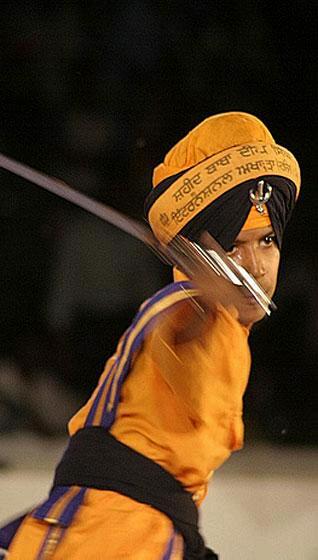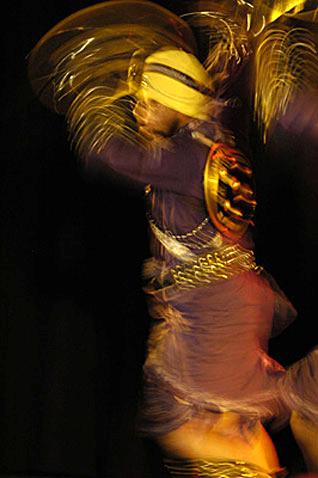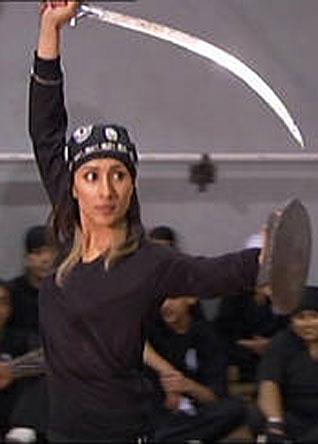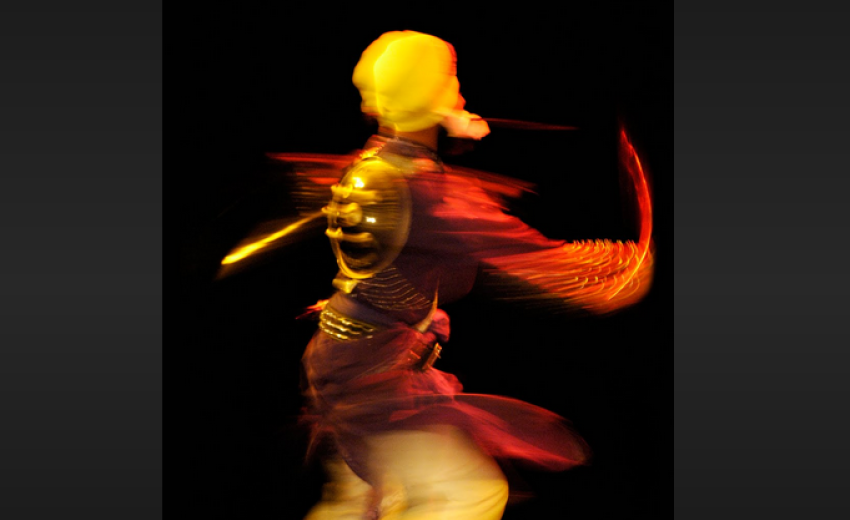 It was definitely love at first sight, Jacob Maxwell's friends say.
It was definitely love at first sight, Jacob Maxwell's friends say.
The 21-year-old York University (Toronto, Canada) student was having lunch at the student centre when he peeked outside and saw men in colourful turbans, holding sticks and swords, form a circle.
He watched intently as they performed mock duels with acrobatics and a bit of wrestling.
The same evening, Maxwell enrolled in a gatka class.
"It's the most fantastic thing I've ever done," he says, three months and dozens of classes later.
Gatka, the traditional Sikh martial art dating back to the early 17th century, has seen a rejuvenation in the past few years. Originally practised by the Sikhs in Punjab to defend against invaders, it's a sort of a cross between fencing and tag, more ferocious yet lyrical all at once.
Duellers mostly use wooden sticks - about a half-metre long - or swords.
Sikh émigrés brought gatka with them. Like other traditions, it was almost lost in transition.
But recently, it has seen a resurgence. Dozens of Sikhs - men, women and children of all ages - have signed up for classes at gurdwaras in Greater Toronto, and the province's only gatka school in Mississauga is almost filled to capacity.
The biggest surprise is the interest non-Sikhs have shown in gatka.
Sarabjeet Singh, owner and instructor at the Yudh Gatka Akhara school in Mississauga, says he almost choked when a Caucasian man first walked in about a year ago wanting to enroll.
"My first question was: Why?" he recalls.
The man, a bus driver in Brampton, said he became interested after watching his neighbour do gatka. The man was Sarabjeet's student for several months.
He has taught half a dozen non-Sikh students. Each one has been impressive, he says.
 Sarabjeet, a former instructor for a class at the Dixie Road Gurdwara
in Mississauga, decided to start a school. His gym - in an industrial
area near Derry and Dixie Roads - had few students initially.
Sarabjeet, a former instructor for a class at the Dixie Road Gurdwara
in Mississauga, decided to start a school. His gym - in an industrial
area near Derry and Dixie Roads - had few students initially.
But currently he has 120 students; another 300 have learned from him in the past four years.
Gatka is old but is still applicable in today's world - because of its spiritual underpinnings and intense physical workout - explains Sarabjeet Singh. "That is its appeal."
Although gatka teaches defence and offence tactics, it is also about treating other people and weapons with respect.
Gursharn Kaur Gill, a fourth-year student at McMaster University, and a student of Sarabjeet's, says the duelling helps her focus.
During a recent class, she duels with a man slightly larger than her. It goes on for a few minutes, then she loses her balance and almost topples over. Amid shouts of encouragement in Punjabi, she regains balance and slowly moves in a circle with her opponent as they try to tap each other with their sticks.
Suddenly she brings her stick down on his, disarming him.
She briefly hugs him, lines up in front of a low counter and does a little hop-dance - like Bhangra - and reverently places the stick.
 She returns to the school twice a week to duel. "It's intense physically but it helps me relieve stress."
She returns to the school twice a week to duel. "It's intense physically but it helps me relieve stress."
Jasdev Singh, an instructor at two of the more than a dozen gurdwaras in greater Toronto, believes an annual gatka tournament has played a major role in its comeback. The Annual International Yudh Gatka Tournament originated in Toronto in 2003.
This year, it is being held in New Jersey, U.S.A., where thousands are expected to gather to watch participants show their skills with sticks and swords.
The Toronto leg of the tournament takes place on August 23, 2009, at the Rexdale Gurdwara.
Colin Mohammed, a Toronto police officer, is planning to take his 3-year-old daughter. "I want her to learn it slowly," he says.
He started classes seven years ago and still attends Sarabjeet's school.
"It's very effective training," says Mohammed, adding that it heightens one's sense of awareness.
"You react very well and very quickly."
[Courtesy: The Toronto Star]
